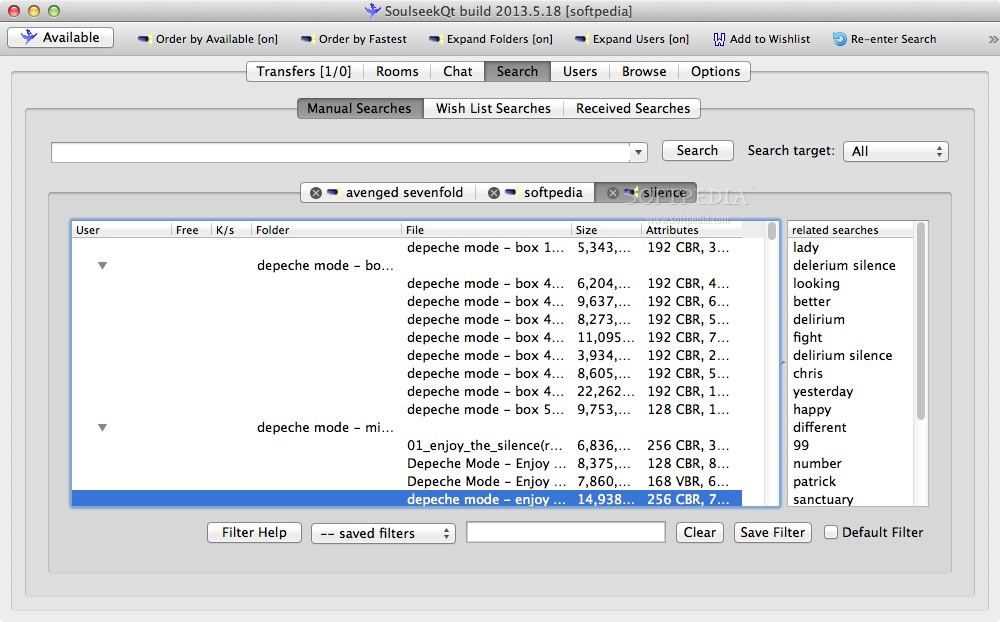

#Soulseekqt and removable drives how to
I'm not sure yet how to produce a useful crash report on the Mac, but I wonder if you can somehow isolate which file is causing the crash? Perhaps by adding one subfolder at a time, using the rescan share button and seeing when it crashes? Once you have the folder it should be easy to do the same one file at a time. As for the crash, this is definitely the most worrisome bit. It seems to be working here, but I'll do some more testing. Not sure why it's not showing the dock icon right away. Significantly, this framework is very much concerned with the voices in the Grime scene, and therefore respondent experiences are central to this analytical method-incorporating in-depth interviews, observation (physical and online), and immersive listening.Thanks for the feedback! I'll fix the build label. It evaluates the global, local, historical, technological, political, lyrical themes, and sonic properties (sounds) found in Grime. This article evaluates key musical influences in the evolution of Grime as both (i) a musical form and (ii) an analysis of influences in relation to its social context. The MDA framework provides a generic mode of musical analysis for research projects in sociology, cultural studies, and the social sciences fields. This method retheorizes genre, providing a more specific, useful, and detailed musical classification system the sonic footprint timestamp (SFT). Using Grime as a case study, I employ the analytical framework I created, that is, Musicological Discourse Analysis (MDA) as a holistic mode of analysis to contextualize Grime sociologically and musicologically. I also examine how electronic dance music reflects and reinforces imperialist desires (the white male producer’s use of orgasmic loops regenerated from the vocals of black/Latina female divas and racialized queers in ‘sexy’ dance tracks), Romantic notions (the widespread assumption that electronic music producers are divinely-inspired auteurs the techno/house fan’s elitist admiration of musicians that remain true to their “art” by remaining in unprofitable underground markets and the music critic’s celebration of sampling and remixing as high art), and modernist concerns (the DJ’s obsession with mastery, the intensely-policed borders between high/low genres, the producer’s preoccupation with technological progress). My work explores how electronic dance music employs “postmodern” technologies in the service of Enlightenment discourses (such as its tendency to cast itself as the universal language of the Information Age or its Cartesian delineation of the music listening audience into those that ‘feed the head’ and those that serve the hedonist flesh). In addition to considering the positive aspects of digitally-crafted music, this project demystifies the utopian rhetoric emanating from dance music aficionados/promoters/producers. By tuning into the contentious dialogues between the makers, shapers, and buyers of computerized dance music, I hope to illustrate the multifarious cultural functions a mass-produced sonic commodity can have. To grasp the possibilities and problematics of digitally-created pop music, I will draw upon a multiplicity of discourses generated by electronic musicians, disc jockeys (DJs), remixers, producers, club/rave promoters, techno/house fans, club-goers, ravers, popular music historians, cultural critics, music industry insiders, dance press, multinational major labels, independent imprints, and regional retailers. This dissertation examines electronic dance music: its transnational production and dissemination, its techno-universalist rhetoric, its racial and sexual politics, its Eurocentric mythologies and liberal humanist ideologies.


 0 kommentar(er)
0 kommentar(er)
